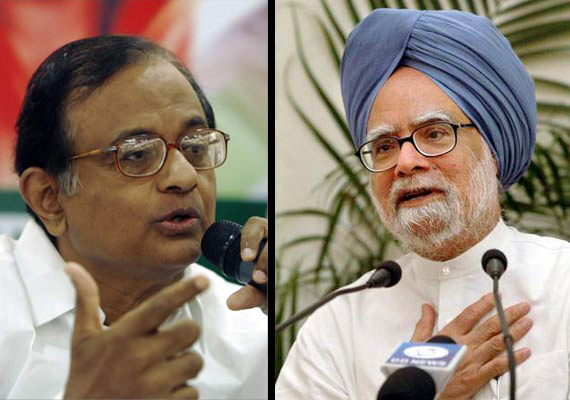New Delhi, Feb 2: While the Supreme Court today came down heavily on former Telecom Minister A Raja, it has not found any fault on the part of Prime Minister Manmohan Singh, the then Finance Minister P Chidambaram or the Ministry he headed.
The judgement has strongly indicted Raja over the manner in which he manipulated the issue of licenses and ordered cancellation of the 122 2G licenses in 22 circles.
The two-member bench of Justices G S Singhvi and Ashok Ganguly found that telecom regulator TRAI's recommendations of 2007 on the policy of first-come first-serve basis was placed before the Telecom Commission in October but the four non-permanent members, including the Finance Secretary, were not even informed about the meeting.
A week later, Raja accepted the recommendations of the Telecom Commission and approved the TRAI's recommendation but did not get in touch with the Ministry of Finance to discuss and finalise the spectrum pricing formula.
“However, as the Minister of C &IT (Raja) was very much concious of the fact that the Secretary, Finance, had objected to the allocation of 2G spectrum at the rates fixed in 2001, he did not consult the Finance Minister (Chidambaram) or the officers of the Finance Ministry,” the judgement said.
Raja sent a letter in November, 2007 to the Prime Minister saying the Department of Telecom has decided to continue with the existing policy.
He did not bother to consider the suggestion made by the Prime Minister that in view of the inadequate availability of spectrum fairness and transparency should be maintained in its allocation.
But within a few hours of the receipt of the letter from the Prime Minister, Raja sent a reply in which he brushed aside the suggestion made by the Prime Minister of ensuring fairness and transparency by saying that it will be “unfair, discriminatory, arbitrary and capacious” to auction the spectrum to new applicants as it will not give them a level-playing field.
The Finance Secretary sent a letter in November, 2007 to Telecom Secretary and questioned how the rate of Rs 1,600 crore determined in 2001 could be applied, without any indexation, to a licence to be given in 2008.
The Finance Secretary also emphasised that, in view of the financial implication, the Finance Ministry should have been consulted.
Telecom Secretary promptly replied by sending a letter a week later in which he mentioned that as per the Cabinet decision of 2003, the DoT had been authorised to finalise the details of implementation of TRAI recommendations of 2007 that had not suggested any change in the entry fee/licence fee.
Raja sent a letter to the Prime Minister in December, 2007 that “DoT follows a policy of first-come first-serve for granting letter of intent to the applicants for Universal Access Service licence. The same has been concurred by the Solicitor General of India during the discussions.”
The judgement referred to the arguments that the meeting of the full Commission, which was scheduled to be held on January 9, 2008 to consider important issues of performance of Telecom sector and pricing of spectrum, was postponed to January 15.
The Government had said that all the applicants including those who were not even eligible for UAS licence collected their Letters of Intent on January 10, 2008.
The January 9 meeting of the Telecom Commission was deliberately postponed because the Finance Secretary had strongly objected in November to the charging of the entry fee fixed in 2001.
The court found that while making recommendations in August, 2007 TRAI itself had recognised that spectrum was a scarce commodity and had suggested allocation of 2G spectrum on the basis of 2001 price by invoking the theory of level-playing field.
Its recommendations became a handle for Raja and officers of DoT who virtually gifted away the “important national asset at throw away prices”, the court said.
The court also said the recommendations made by TRAI on September 28, 2007 were not placed before the full Commission which, among others, would have included the Finance Secretary.
“The notice of meeting of the Telecom Commission was not given to any of the non-permanent members..... In such matter, it was absolutely necessary for the DoT to take the opinion of the Finance Ministry,” the judgement said.

